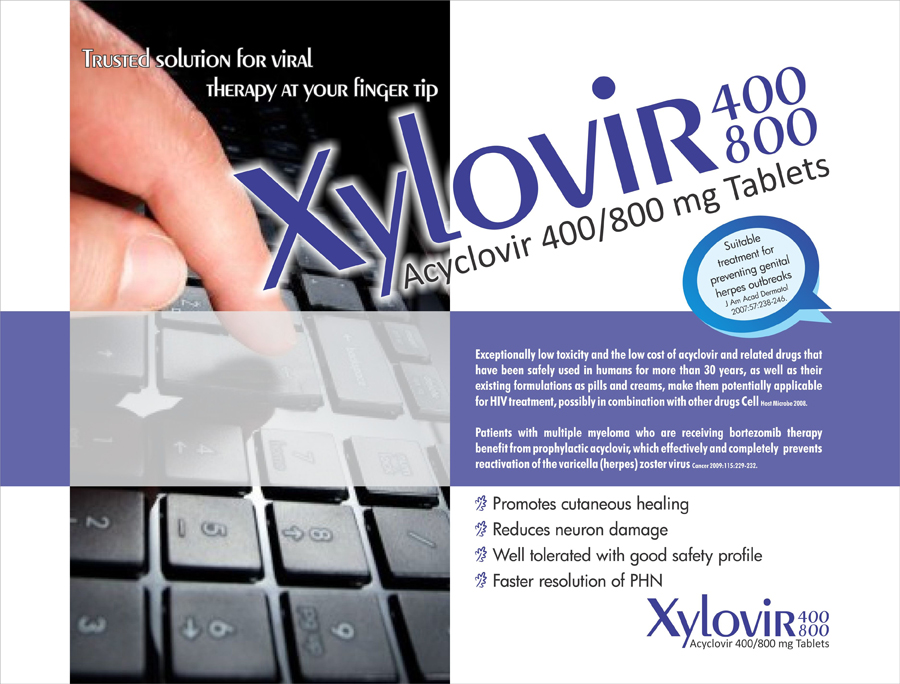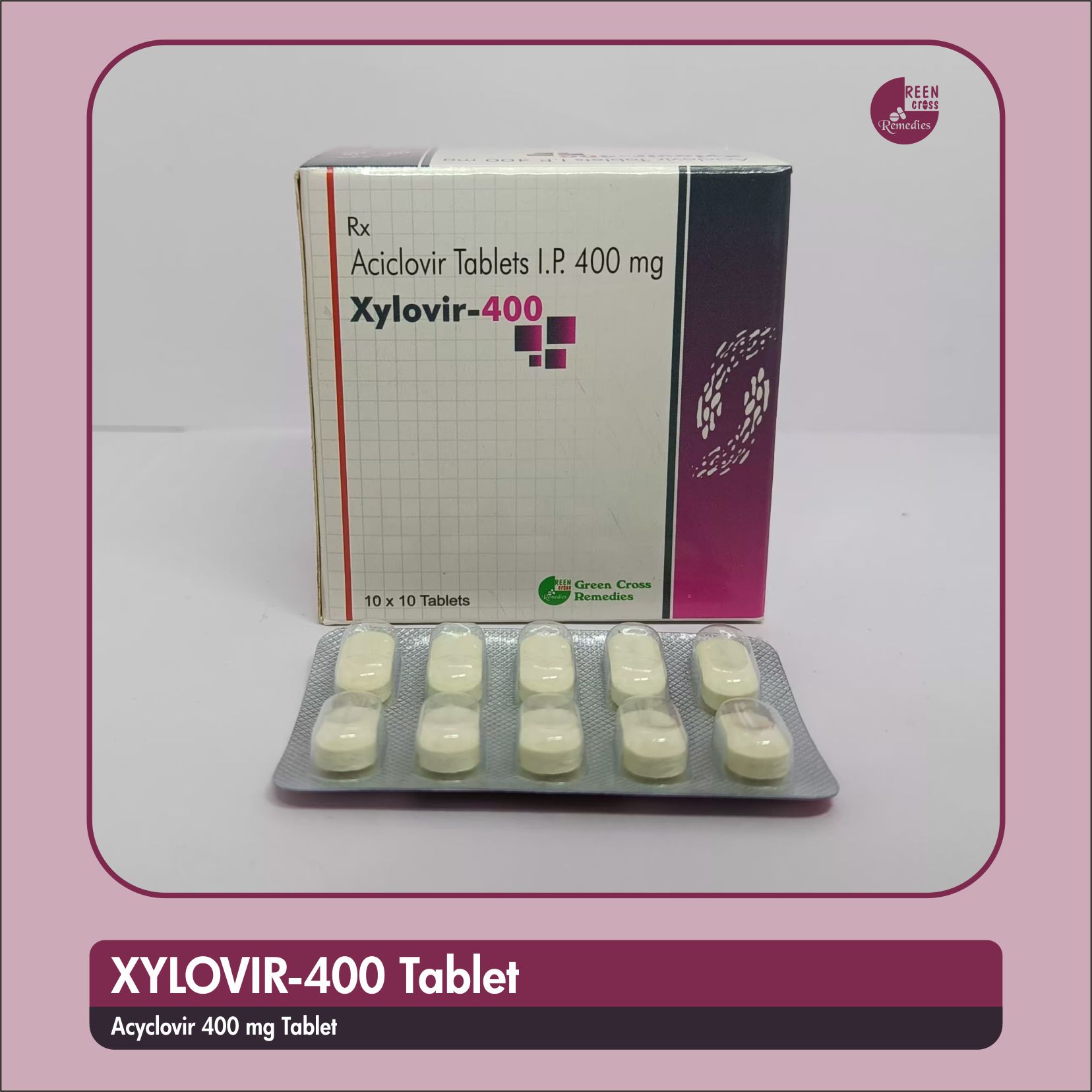XYLOVIR 400 Tablet

Acyclovir 400 mg Tablet Use, Indication, Side Effects, Dosage, Mechanism of Action, Price, Contra-Indications, Drug Interactions....
XYLOVIR 400 TABLET (Aciclovir IP 400 mg)
A Potent Anti Viral Drug Medicine
Trused Solution For Viral Infection Therapy, Promotes Cutaneous Healing, Reduces Neuron Damage, Well Tolerated With Good Safety Profile.
XYLOVIR 400 Tablet contains Acyclovir 400 mg, an antiviral medication used primarily to treat infections caused by the herpes simplex virus (HSV) and varicella-zoster virus (VZV). Acyclovir works by inhibiting the replication of viral DNA, which helps to reduce the severity and duration of viral infections.
Uses and Indications:
XYLOVIR 400 mg Tablet is used for the treatment of:
-
Herpes Simplex Virus (HSV) Infections:
-
Genital herpes: Acyclovir is used to treat both primary and recurrent outbreaks.
-
Cold sores (Herpes labialis): Acyclovir helps in managing oral herpes.
-
Herpes simplex encephalitis: A severe brain infection caused by HSV.
-
-
Varicella-Zoster Virus (VZV) Infections:
-
Chickenpox (Varicella).
-
Shingles (Herpes zoster): An outbreak of a painful skin rash due to the reactivation of the chickenpox virus.
-
- Other Uses:
- Prevention of HSV infections in immunocompromised patients (e.g., those with HIV/AIDS, organ transplant recipients).
Dosage:
The dosage of XYLOVIR 400 depends on the condition being treated and the patient's medical status. The typical dosages are:
-
Adult Dosage:
-
For genital herpes (primary infection): 400 mg orally, 3 times a day for 7-10 days.
-
For recurrent genital herpes: 400 mg orally, 3 times a day for 5 days.
-
For shingles: 800 mg orally, 5 times a day for 7-10 days.
-
For cold sores: 200 mg orally, 5 times a day for 5 days.
-
-
Pediatric Dosage:
-
For children, the dosage is adjusted based on weight and age. Always consult with a pediatrician.
-
Note: Dosages may vary based on individual health conditions. Always follow the healthcare provider's instructions.
Mechanism of Action:
Acyclovir is a nucleoside analogue. Once inside infected cells, it is converted to acyclovir triphosphate by the enzyme thymidine kinase. This active form inhibits viral DNA polymerase, which is essential for the replication of viral DNA. By preventing the virus from replicating, acyclovir helps control the infection and reduces symptoms.
Side Effects:
Common side effects of XYLOVIR 400 include:
-
Gastrointestinal issues: Nausea, vomiting, diarrhea.
-
Headache and dizziness.
-
Fatigue or general weakness.
-
Skin rash or itching.
Serious side effects (though rare) that require immediate medical attention include:
-
Kidney issues: Renal dysfunction, especially in patients with preexisting kidney conditions.
-
Neurological symptoms: Seizures, confusion, agitation, tremors.
-
Allergic reactions: Swelling of the face, lips, or throat, difficulty breathing (anaphylaxis).
Contraindications:
XYLOVIR 400 should be avoided in individuals who:
-
Have a known allergy to acyclovir or any of the excipients in the tablet.
-
Have severe renal (kidney) impairment.
-
Are hypersensitive to valacyclovir (another antiviral medication that is closely related to acyclovir).
Precaution: Caution should be exercised in patients with kidney disease, elderly patients, and pregnant or breastfeeding women.
Drug Interactions:
Some important drug interactions include:
-
Probenecid: May increase the blood concentration of acyclovir, increasing the risk of side effects.
-
Zidovudine (AZT): May enhance the effects of both drugs, increasing the risk of side effects like drowsiness and nausea.
-
Cimetidine: May increase acyclovir levels, which could increase the risk of side effects, especially in renal impairment.
-
Nephrotoxic drugs: Drugs that impact kidney function (e.g., aminoglycoside antibiotics, cyclosporine) may increase the risk of kidney damage when used together with acyclovir.
For Use of Registered Medical Practitioner or A Hospital Only

